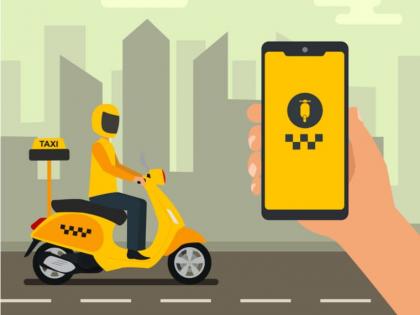Electric Bike Taxis Now Legal in Maharashtra: What Rules Should Riders, Aggregators & Drivers Now Follow?
By Lokmat English Desk | Updated: July 9, 2025 17:37 IST2025-07-09T17:30:46+5:302025-07-09T17:37:39+5:30
The Maharashtra government has formally released the Bike-Taxi Rules, 2025, setting regulatory guidelines for bike-taxi operations across the state. ...

Electric Bike Taxis Now Legal in Maharashtra: What Rules Should Riders, Aggregators & Drivers Now Follow?
The Maharashtra government has formally released the Bike-Taxi Rules, 2025, setting regulatory guidelines for bike-taxi operations across the state. With these rules now in effect, aggregator platforms can legally apply for licenses. This development follows state minister Pratap Sarnaik's recent undercover ride from Mantralaya, the state’s administrative headquarters, which exposed the ongoing illegal bike-taxi services in Mumbai. The incident sparked immediate government action, aiming to streamline operations and boost passenger safety. The new rules are especially focused on electric vehicles, clearly distinguishing legal players from unlicensed ones while promoting cleaner mobility. Enforcement responsibility will rest with regional transport authorities and municipalities.
According to the official notification, only electric two-wheelers will be allowed for bike-taxi services in Maharashtra. Traditional petrol-run bikes are strictly prohibited under the new rules. Aggregators must manage a minimum fleet of 50 electric bikes that are registered within the state. To operate legally, these platforms need to pay a ₹1 lakh licensing fee and maintain a ₹5 lakh refundable security deposit. Each license will be valid for a five-year period. Bike taxis must have a yellow paint job with “bike taxi” visibly written in reflective letters. These steps aim to make such vehicles easily identifiable and ensure operational transparency.
The guidelines stress rider and passenger safety. Riders are required to offer yellow helmets to passengers, which must be sanitized after every ride. Only individuals aged between 20 and 50 years can be employed as bike taxi drivers, and they must hold a valid commercial driving license and PSV badge. All drivers must undergo police background checks, routine health evaluations, and demonstrate familiarity with local routes. Anyone convicted of driving under the influence of alcohol or drugs within the past seven years is banned from driving a bike taxi. These strict measures are meant to enhance rider reliability and commuter trust.
Also Read: Mumbai Traffic: New 1.5-Km Bridge to Connect Parel to Coastal Road at Haji Ali in Just 10 Minutes
All aggregator apps must include essential safety features, including GPS tracking, a panic button, and a 24/7 control room. The apps should also allow female passengers to opt for female drivers. Street hailing is not permitted under the new rules—rides can only be booked via the aggregator’s official app. Driver shifts will be capped at eight hours per day, and the maximum trip distance is restricted to 15 kilometers. Aggregator companies must also provide safety and conduct training to their drivers every three months. These digital and operational rules are designed to ensure a secure, convenient, and tech-enabled commuting experience.
The Maharashtra government has empowered regional transport offices and other local authorities to determine city-specific fare structures, permissible fleet sizes, operational routes, and emergency response mechanisms. Furthermore, these electric bike taxis are to be integrated with the existing public transport systems whenever feasible. Following Sarnaik’s sting operation, the Transport Commissioner’s office issued a warning to the public against using unauthorised services and encouraged them to report violations. The department confirmed that aggregators like Rapido, Ola, and Uber are operating without proper permits. As a result, multiple police cases have already been filed, and RTOs have been instructed to intensify enforcement.
Open in app